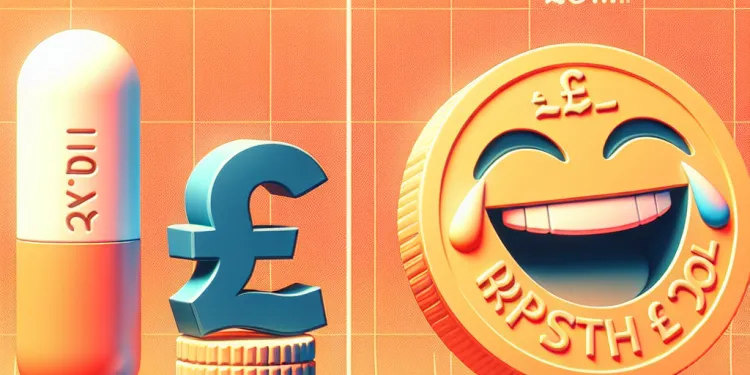
Find Help
More Items From Ergsy search
-
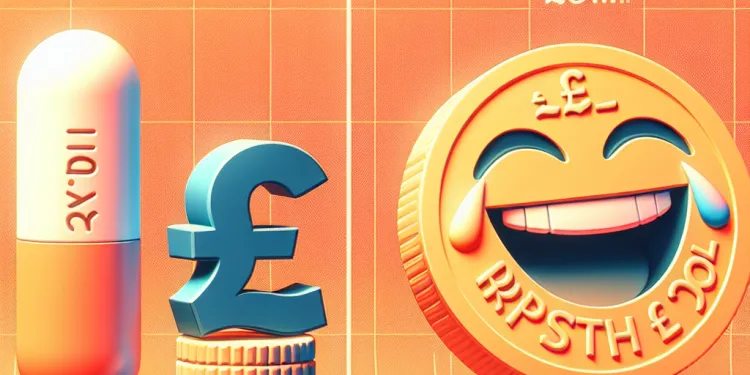
Which one is better for toothache: Ibuprofen or Paracetamol?
Relevance: 100%
-

What is the difference between Aspirin, Paracetamol, and Ibuprofen?
Relevance: 71%
-
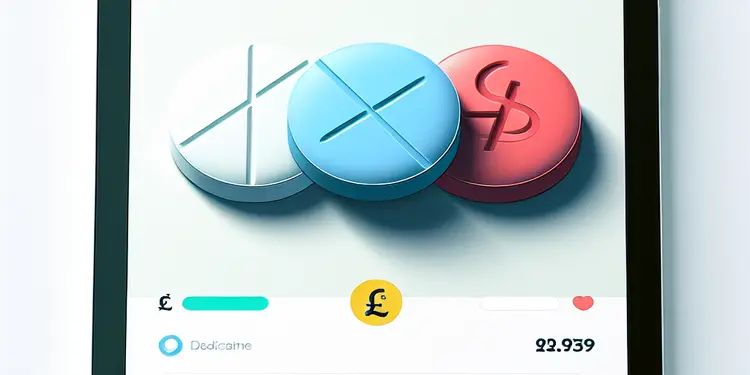
What is the difference between aspirin, paracetamol, and ibuprofen?
Relevance: 64%
-

Is it safe to take Paracetamol with Ibuprofen?
Relevance: 64%
-

Can I take ibuprofen and paracetamol together? - Common Health Questions | NHS
Relevance: 60%
-

What is Paracetamol?
Relevance: 51%
-

Does Paracetamol reduce inflammation?
Relevance: 49%
-

What is a common use of paracetamol?
Relevance: 48%
-

What is Paracetamol?
Relevance: 47%
-

What is Ibuprofen?
Relevance: 45%
-
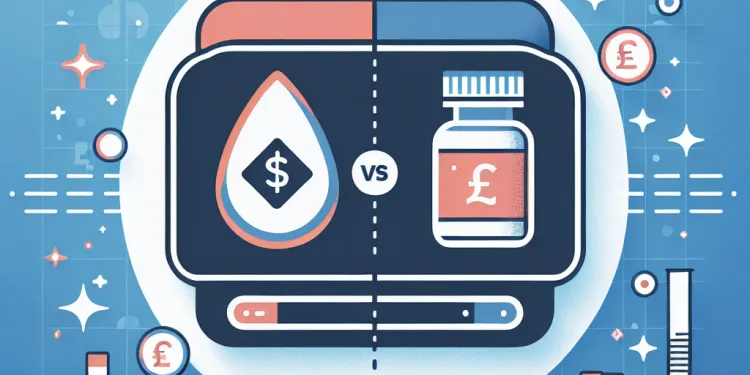
Are Aspirin and Ibuprofen the same?
Relevance: 40%
-

Is Paracetamol the same as Aspirin?
Relevance: 38%
-
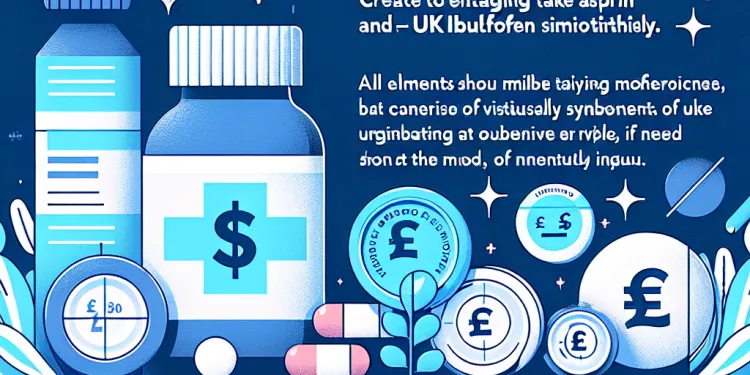
Can I take Aspirin and Ibuprofen together?
Relevance: 37%
-

Can Ibuprofen be used to reduce inflammation?
Relevance: 36%
-

What are the side effects of Ibuprofen?
Relevance: 34%
-

Can I use Ibuprofen for menstrual pain?
Relevance: 33%
-
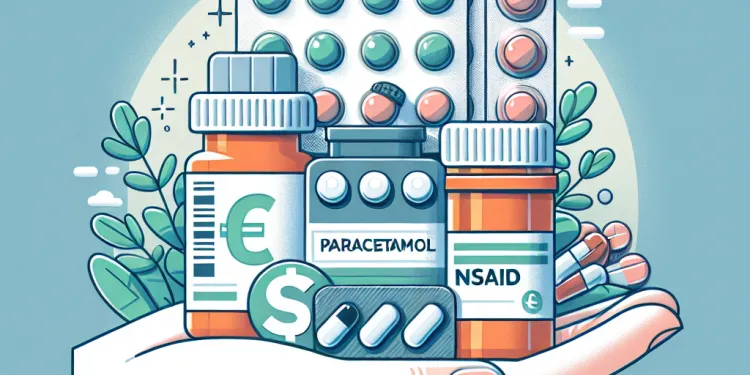
Why might someone choose Paracetamol over NSAIDs?
Relevance: 32%
-

Is paracetamol linked to autism?
Relevance: 32%
-
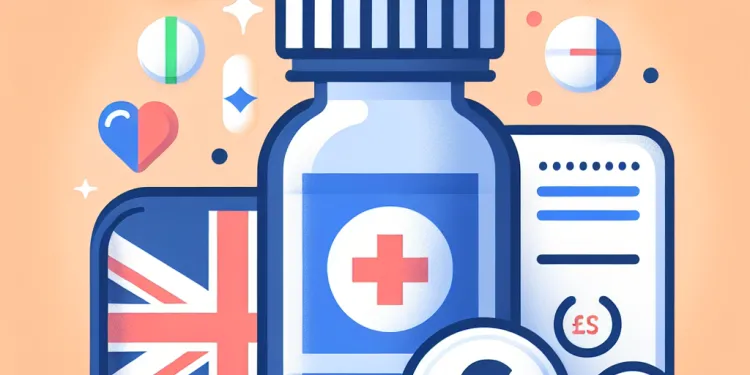
What are the side effects of Paracetamol?
Relevance: 31%
-

Can Paracetamol be used in pregnant women?
Relevance: 30%
-
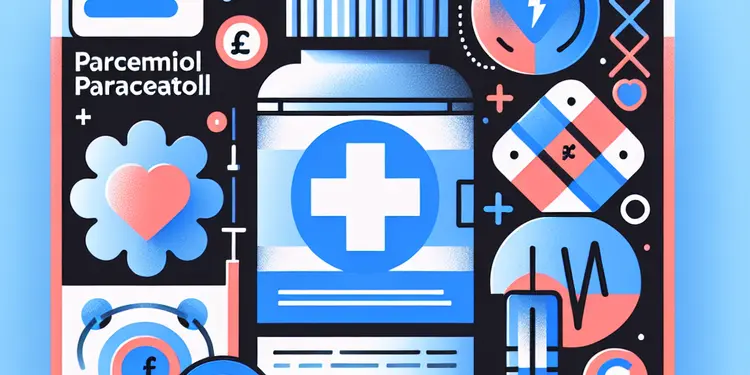
Why is there concern about paracetamol and autism?
Relevance: 30%
-

Which one is better for headaches: Aspirin or Paracetamol?
Relevance: 29%
-

Is there any scientific evidence that links paracetamol use to autism?
Relevance: 28%
-

Is there any risk of using paracetamol outside of pregnancy with regard to autism?
Relevance: 28%
-

What should pregnant individuals consider when taking paracetamol?
Relevance: 27%
-

NHS 24 | How to get help for dental pain
Relevance: 22%
-

What can cause autism, if not paracetamol?
Relevance: 20%
-

How prevalent is the use of paracetamol during pregnancy?
Relevance: 20%
-

Advice if your child has... A High temperature
Relevance: 20%
-
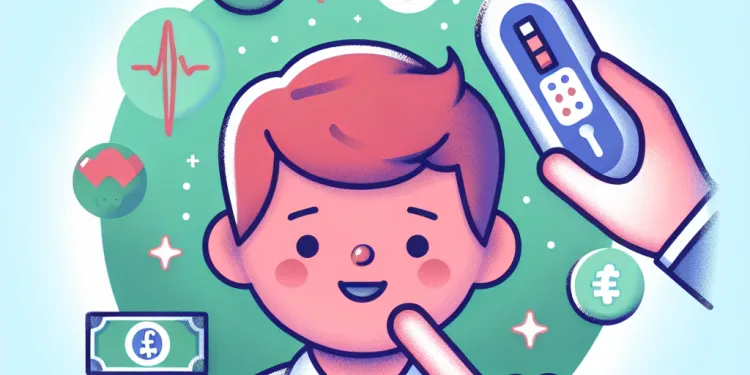
Which medication should be avoided for children with fevers?
Relevance: 19%
-

What are the limitations of studies examining paracetamol use and autism?
Relevance: 19%
-

NHS 24 | Self-help tips for dental pain
Relevance: 19%
-

Caring for a child with fever | NHS
Relevance: 18%
-

Has paracetamol been linked to other developmental issues besides autism?
Relevance: 18%
-
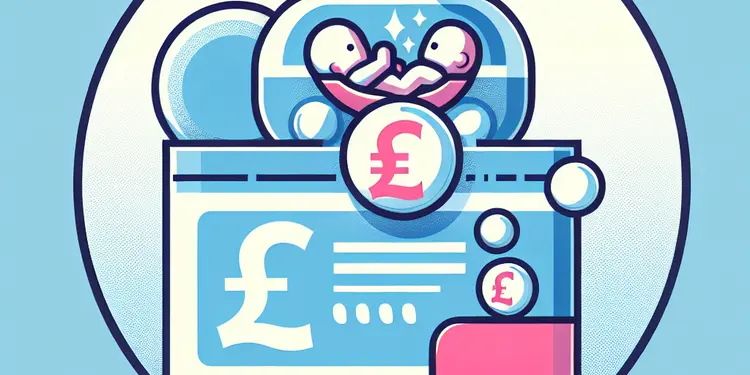
Have there been any recent changes in guidelines regarding paracetamol use and pregnancy?
Relevance: 17%
-

Are Tylenol and Paracetamol the same?
Relevance: 16%
-

Have any major health organizations advised against using paracetamol during pregnancy due to autism concerns?
Relevance: 15%
-

How to treat an insect bite or sting | NHS
Relevance: 14%
-

What if I need urgent dental care?
Relevance: 13%
-

How to deal with period pain | NHS
Relevance: 13%
Understanding Toothache
Toothache is a common problem that can cause discomfort and pain. It can be caused by various factors such as dental decay, infection, or injury. Regardless of the cause, managing the pain effectively is essential until you can see a dentist. In the UK, two popular options for pain relief are Ibuprofen and Paracetamol. Both are available over-the-counter and can help alleviate the discomfort associated with toothache, but they work in different ways.
What is Ibuprofen?
Ibuprofen is a non-steroidal anti-inflammatory drug (NSAID) that reduces inflammation and pain. It works by blocking the production of certain chemicals in the body that cause inflammation. This makes it particularly effective for pain that is accompanied by swelling. Ibuprofen is commonly used for managing dental pain, such as that caused by a toothache.
What is Paracetamol?
Paracetamol, known as acetaminophen in some countries, is a pain reliever and a fever reducer. Unlike ibuprofen, paracetamol does not have anti-inflammatory properties, but it is effective in reducing pain and fever. It is gentler on the stomach compared to NSAIDs and is often recommended for mild to moderate pain relief.
Ibuprofen vs Paracetamol for Toothache
When deciding between Ibuprofen and Paracetamol for toothache, it is crucial to understand the nature of your pain. If the toothache is accompanied by swelling or inflammation, Ibuprofen might be the better choice due to its anti-inflammatory properties. This can be particularly beneficial in managing pain that results from inflamed tissues or dental procedures. However, if the pain is persistent but not accompanied by visible swelling, Paracetamol might be sufficient to provide relief.
Safety and Precautions
It is important to consider safety and precautions when taking pain relief medications. Ibuprofen should be taken with food to minimize potential stomach irritation and is not suitable for individuals with certain health conditions such as ulcers or kidney issues. Paracetamol, on the other hand, has fewer gastrointestinal side effects but must be taken within the recommended dosage to avoid liver damage. Combining both medications is sometimes suggested for better pain management, but only under a healthcare provider's guidance.
Conclusion
In the UK, both Ibuprofen and Paracetamol are effective options for managing toothache. The choice depends on individual needs and the nature of the pain. If swelling and inflammation are present, Ibuprofen may offer more relief, whereas Paracetamol is a good alternative for individuals needing a gentler pain relief option. Always consult with a healthcare professional if the toothache persists or if you are unsure which medication is appropriate for you.
Understanding Toothache
Toothache means your tooth hurts. This happens a lot and can be very painful. It can happen because your tooth is bad, infected, or hurt. No matter why it hurts, it's important to feel better until you see a dentist. In the UK, people often use Ibuprofen or Paracetamol to stop the pain. You can buy both without a doctor's note. They help with pain but work differently.
What is Ibuprofen?
Ibuprofen is a type of medicine that helps reduce swelling and pain. It stops certain chemicals in the body that cause swelling. This is why it helps with pain when there is swelling. People use Ibuprofen when their teeth hurt.
What is Paracetamol?
Paracetamol is a medicine that helps with pain and can also reduce fever. It doesn’t stop swelling like Ibuprofen. It is gentle on the stomach. People use it for mild to medium pain.
Ibuprofen vs Paracetamol for Toothache
Choosing between Ibuprofen and Paracetamol depends on your pain. If your toothache comes with swelling, Ibuprofen might be better because it stops swelling. This helps with pain from swollen gums or after seeing a dentist. If there is no swelling, Paracetamol can help too.
Safety and Precautions
Be careful when taking pain medicine. Take Ibuprofen with food so it won't upset your stomach. Don't use Ibuprofen if you have ulcers or kidney problems. Paracetamol is easier on the stomach but don't take too much, or it can hurt your liver. Sometimes, people take both medicines, but only if a doctor says it's okay.
Conclusion
In the UK, Ibuprofen and Paracetamol can help with toothache. Which one to use depends on your pain. If there is swelling, try Ibuprofen. If you want something gentle, use Paracetamol. Talk to a healthcare worker if the pain doesn’t go away or if you aren’t sure what to do.
Frequently Asked Questions
What is Ibuprofen?
Ibuprofen is a nonsteroidal anti-inflammatory drug (NSAID) that helps reduce inflammation, pain, and fever.
What is Paracetamol?
Paracetamol, also known as acetaminophen, is a medication used to relieve pain and reduce fever.
How does Ibuprofen help with toothache?
Ibuprofen helps with toothache by reducing inflammation and blocking pain signals in the body.
How does Paracetamol help with toothache?
Paracetamol helps relieve toothache pain by working as a pain reliever and fever reducer, though it does not reduce inflammation.
Which is better for inflammation, Ibuprofen or Paracetamol?
Ibuprofen is better for inflammation as it is an anti-inflammatory drug, whereas Paracetamol does not have significant anti-inflammatory effects.
Is Ibuprofen more effective for severe toothache?
Ibuprofen may be more effective for severe toothache due to its anti-inflammatory properties, especially if the pain is caused by inflammation.
Can I take Ibuprofen and Paracetamol together for toothache?
In some cases, Ibuprofen and Paracetamol can be taken together, but it is important to follow dosing guidelines and consult a healthcare professional.
What are the side effects of Ibuprofen?
Common side effects of Ibuprofen include stomach upset, nausea, dizziness, and sometimes more serious effects like increased blood pressure or gastrointestinal bleeding with prolonged use.
What are the side effects of Paracetamol?
Paracetamol is generally well-tolerated, but overdose can lead to serious liver damage. Common side effects can include nausea or rash.
Is it safe to take Ibuprofen on an empty stomach?
It is generally recommended to take Ibuprofen with food or milk to minimize the risk of stomach upset and gastrointestinal irritation.
Does Paracetamol cause stomach irritation?
Paracetamol is less likely to cause stomach irritation compared to nonsteroidal anti-inflammatory drugs like Ibuprofen.
How long does it take for Ibuprofen to work for toothache?
Ibuprofen typically starts relieving pain within 30 minutes to an hour after ingestion.
How long does it take for Paracetamol to work for toothache?
Paracetamol usually begins to take effect within 30 minutes and can provide pain relief for several hours.
Can I take Ibuprofen if I have asthma?
Some people with asthma may experience worsening of symptoms when taking NSAIDs like Ibuprofen, so it is important to consult a healthcare provider first.
Which medication is safer for long-term use, Ibuprofen or Paracetamol?
Paracetamol is generally considered safer for long-term use at recommended doses, while long-term use of Ibuprofen can increase the risk of gastrointestinal issues and cardiovascular events.
What should I do if toothache persists despite medication?
If toothache persists, it is important to see a dentist to determine the underlying cause and appropriate treatment.
Can Ibuprofen be used for dental inflammation?
Yes, Ibuprofen can be effective for dental inflammation due to its anti-inflammatory properties.
Is there any risk of allergic reaction to Ibuprofen?
Yes, some people may have an allergic reaction to Ibuprofen, which can include rash, hives, or difficulty breathing.
Can I take Paracetamol if I have liver issues?
Paracetamol should be used with caution in individuals with liver issues, and it is important to consult a healthcare provider in such cases.
Which medication is more likely to cause overdose, Ibuprofen or Paracetamol?
Paracetamol has a higher risk of severe overdose effects, particularly liver damage, if taken in excessive amounts.
What is Ibuprofen?
Ibuprofen is a medicine.
It helps when you have pain, like a headache or a sore knee.
It can also help if you have a fever or swelling.
If you don't feel well, you can ask an adult to help you decide if you need ibuprofen.
Always follow what the doctor or the packet says.
Visual aids like pictures can help you understand more about ibuprofen.
Ibuprofen is a type of medicine. It helps to make swelling, pain, and fever go away.
What is Paracetamol?
Paracetamol is a medicine. It helps when you have pain or a high temperature (fever). Many people take paracetamol when they feel unwell.
If you are unsure about taking it, ask a grown-up or someone you trust for help.
Paracetamol, also called acetaminophen, is a medicine. It helps take away pain and bring down a fever.
How does Ibuprofen help with a toothache?
Ibuprofen is a medicine. It can make toothaches hurt less. When your tooth hurts, it gets swollen and red. Ibuprofen helps to stop the swelling. It makes the pain go away.
If your tooth still hurts, tell a grown-up or talk to a dentist. They can help you feel better.
You can use apps or tools to read this out loud. They can help you understand better.
Ibuprofen can help with a toothache. It works by making the swelling go down and stopping pain signals in your body.
How does Paracetamol help with toothache?
Paracetamol is a type of medicine. It helps make pain go away.
Paracetamol stops your brain from feeling pain.
If your tooth hurts, you can take paracetamol.
It can help the pain feel less bad.
Ask an adult to help you take the right amount.
Try to rest and relax. This can help you feel better too.
Paracetamol helps with toothache. It stops the pain and can also bring down a fever. But it does not help with swelling.
Which medicine is better for swelling: Ibuprofen or Paracetamol?
Swelling is when a part of your body gets bigger and hurts.
Ibuprofen can help with swelling and pain.
Paracetamol helps with pain, but not with swelling.
Use Ibuprofen if you have swelling.
Ask an adult or a doctor if you are not sure.
You can use a tool to read aloud the text to help you understand better.
Ibuprofen is good for swelling and redness because it helps to make them better. Paracetamol doesn't help much with swelling and redness.
Does Ibuprofen work well for really bad tooth pain?
Ibuprofen might work better for really bad tooth pain. This is because it helps reduce swelling, which can cause pain. If your tooth hurts because it is swollen, ibuprofen can help.
Can I take Ibuprofen and Paracetamol together for toothache?
Do you have a toothache and want to take medicine? You might wonder if you can use Ibuprofen and Paracetamol at the same time.
Ask a doctor or a grown-up to be sure it's okay.
You can:
- Set reminders so you don't take too much medicine.
- Use a timer to know when you can take more medicine.
Always follow what the doctor or pharmacist says.
Sometimes, you can take Ibuprofen and Paracetamol at the same time. But you need to be careful. Make sure to follow the rules for how much to take. Also, talk to a doctor or nurse if you are unsure.
What happens if Ibuprofen makes you feel unwell?
Sometimes, Ibuprofen can cause problems. Here are some things you might feel:
- Tummy ache
- Feeling sick or throwing up
- Headache
- Dizzy feelings
- Feeling sleepy
If you feel any of these, it's good to stop taking it and tell an adult or a doctor.
Using pictures or talking to someone about it can help you understand better.
When you take Ibuprofen, it can sometimes make your tummy feel upset. You might feel like you need to be sick, or your head might spin a bit. If you take it for a long time, it could cause more serious problems like high blood pressure or bleeding inside your tummy.
Here are some things that can help:
- Take Ibuprofen with food to protect your tummy.
- Drink lots of water.
- If you feel dizzy, sit or lie down until it passes.
- Talk to a grown-up or a doctor if you feel unwell.
What can happen if you take Paracetamol?
Paracetamol is a medicine that usually does not cause problems. But if you take too much, it can hurt your liver. Some people might feel sick or get a rash when they take paracetamol.
Can you take Ibuprofen without food?
It is best to take Ibuprofen with food or milk. This helps stop your stomach from hurting.
Can Paracetamol hurt your stomach?
Paracetamol is gentle on your tummy. It does not upset it like some other medicines, such as Ibuprofen, can.
How long before Ibuprofen helps a toothache?
Ibuprofen can help if your tooth hurts. It takes about 20 to 30 minutes to start working. But remember, everyone's body is different. Sometimes it might take a little longer.
Here are some tips:
- Make sure you take the right amount. It's usually on the package or ask an adult.
- If it still hurts a lot, talk to a dentist or a doctor.
- A warm cloth on your face might help too.
Ibuprofen usually helps with pain 30 minutes to 1 hour after you take it.
How long does it take for paracetamol to help with toothache?
Paracetamol is a medicine that can help when your tooth hurts.
It usually starts to help with pain in about 30 minutes after you take it.
If your tooth still hurts after taking paracetamol, tell a grown-up or talk to a doctor.
Using pictures or a timer on your phone can help you know when 30 minutes have passed.
Paracetamol starts to work about 30 minutes after you take it. It can help with pain for a few hours.
Can I take Ibuprofen if I have asthma?
If you have asthma, talk to your doctor before taking ibuprofen.
Some people with asthma should not take ibuprofen because it can make breathing problems worse.
Here are some things you can do:
- Ask your doctor what medicines are safe for you.
- Read the label on the medicine bottle.
- If you feel unwell after taking ibuprofen, stop taking it and tell your doctor.
Some people with asthma might feel worse when they take medicine like Ibuprofen. It is good to talk to a doctor or nurse first.
Which medicine is safer to use for a long time, Ibuprofen or Paracetamol?
When picking medicine, talk to a doctor or nurse. They know what is safe for you.
Ibuprofen:
- Helps with pain and swelling.
- Can hurt your stomach if used too long.
Paracetamol:
- Good for pain and fever.
- Safer for your stomach, but too much can hurt your liver.
Ask an adult to use the health app or read the medicine box to know the right amount to take.
Paracetamol is usually safer if you take it for a long time and follow the instructions. But if you take Ibuprofen for a long time, it can upset your stomach and might not be good for your heart.
What should I do if my tooth still hurts after taking medicine?
Here are some easy steps you can follow:
- Talk to an adult you trust. They can help you decide what to do next.
- Visit a dentist. A dentist is a special doctor for your teeth. They can find out why your tooth still hurts.
- Make sure you are taking the right medicine. Sometimes, you might need a different medicine to help with the pain.
- Use a warm cloth or ice pack on your cheek. This can help with the pain.
- Try to relax and rest. Being calm and taking deep breaths can help you feel better.
Remember, it's important to take care of your teeth and see a dentist if the pain doesn't go away. They can help you feel better.
If your tooth hurts for a long time, you should go to the dentist. The dentist can find out why it hurts and help make it better.
Can I use Ibuprofen if my teeth hurt?
Ibuprofen can help if your teeth or gums are swollen or painful. It is a type of medicine that reduces pain and swelling.
Before taking Ibuprofen, it's important to ask an adult or a doctor if it's safe for you. They can tell you the right amount to take.
If your pain doesn't go away, you should see a dentist. A dentist is a special doctor for teeth. They can find out what is wrong and help you feel better.
Using a timer or a pill organizer can help you remember when to take your medicine.
Yes, Ibuprofen can help with tooth swelling because it can make swelling go down.
Can Ibuprofen cause allergies?
Ibuprofen is a type of medicine that can help with pain. Sometimes, people might have an allergy to it.
If someone is allergic, they might get a rash, itchy skin, or even trouble breathing.
If you feel funny after taking Ibuprofen, tell an adult or a doctor right away.
Tools like pictures or apps that read text aloud can help you understand more.
Yes, some people can be allergic to Ibuprofen. This can make them have a rash, hives, or trouble breathing.
Can I take Paracetamol if I have liver issues?
If you have liver problems, you should talk to a doctor before taking Paracetamol.
Doctors can help you know if it is safe for you.
You can use simple tools like speaking apps or asking someone you trust to help you understand.
Be careful when using paracetamol if you have liver problems. Talk to a doctor before taking it.
Which medicine can you take too much of more easily—Ibuprofen or Paracetamol?
Here are some tips to help you:
- Ask a doctor or nurse if you have questions.
- Read the label on the medicine bottle.
- Use a pill organizer to keep track.
It’s important to take medicine safely.
Taking too much paracetamol can be very bad. It can hurt your liver a lot.
Useful Links
This website offers general information and is not a substitute for professional advice.
Always seek guidance from qualified professionals.
If you have any medical concerns or need urgent help, contact a healthcare professional or emergency services immediately.
Some of this content was generated with AI assistance. We’ve done our best to keep it accurate, helpful, and human-friendly.
- Ergsy carfully checks the information in the videos we provide here.
- Videos shown by Youtube after a video has completed, have NOT been reviewed by ERGSY.
- To view, click the arrow in centre of video.
- Most of the videos you find here will have subtitles and/or closed captions available.
- You may need to turn these on, and choose your preferred language.
- Go to the video you'd like to watch.
- If closed captions (CC) are available, settings will be visible on the bottom right of the video player.
- To turn on Captions, click settings .
- To turn off Captions, click settings again.
More Items From Ergsy search
-

Which one is better for toothache: Ibuprofen or Paracetamol?
Relevance: 100%
-

What is the difference between Aspirin, Paracetamol, and Ibuprofen?
Relevance: 71%
-

What is the difference between aspirin, paracetamol, and ibuprofen?
Relevance: 64%
-

Is it safe to take Paracetamol with Ibuprofen?
Relevance: 64%
-

Can I take ibuprofen and paracetamol together? - Common Health Questions | NHS
Relevance: 60%
-

What is Paracetamol?
Relevance: 51%
-

Does Paracetamol reduce inflammation?
Relevance: 49%
-

What is a common use of paracetamol?
Relevance: 48%
-

What is Paracetamol?
Relevance: 47%
-

What is Ibuprofen?
Relevance: 45%
-

Are Aspirin and Ibuprofen the same?
Relevance: 40%
-

Is Paracetamol the same as Aspirin?
Relevance: 38%
-

Can I take Aspirin and Ibuprofen together?
Relevance: 37%
-

Can Ibuprofen be used to reduce inflammation?
Relevance: 36%
-

What are the side effects of Ibuprofen?
Relevance: 34%
-

Can I use Ibuprofen for menstrual pain?
Relevance: 33%
-

Why might someone choose Paracetamol over NSAIDs?
Relevance: 32%
-

Is paracetamol linked to autism?
Relevance: 32%
-

What are the side effects of Paracetamol?
Relevance: 31%
-

Can Paracetamol be used in pregnant women?
Relevance: 30%
-

Why is there concern about paracetamol and autism?
Relevance: 30%
-

Which one is better for headaches: Aspirin or Paracetamol?
Relevance: 29%
-

Is there any scientific evidence that links paracetamol use to autism?
Relevance: 28%
-

Is there any risk of using paracetamol outside of pregnancy with regard to autism?
Relevance: 28%
-

What should pregnant individuals consider when taking paracetamol?
Relevance: 27%
-

NHS 24 | How to get help for dental pain
Relevance: 22%
-

What can cause autism, if not paracetamol?
Relevance: 20%
-

How prevalent is the use of paracetamol during pregnancy?
Relevance: 20%
-

Advice if your child has... A High temperature
Relevance: 20%
-

Which medication should be avoided for children with fevers?
Relevance: 19%
-

What are the limitations of studies examining paracetamol use and autism?
Relevance: 19%
-

NHS 24 | Self-help tips for dental pain
Relevance: 19%
-

Caring for a child with fever | NHS
Relevance: 18%
-

Has paracetamol been linked to other developmental issues besides autism?
Relevance: 18%
-

Have there been any recent changes in guidelines regarding paracetamol use and pregnancy?
Relevance: 17%
-

Are Tylenol and Paracetamol the same?
Relevance: 16%
-

Have any major health organizations advised against using paracetamol during pregnancy due to autism concerns?
Relevance: 15%
-

How to treat an insect bite or sting | NHS
Relevance: 14%
-

What if I need urgent dental care?
Relevance: 13%
-

How to deal with period pain | NHS
Relevance: 13%


